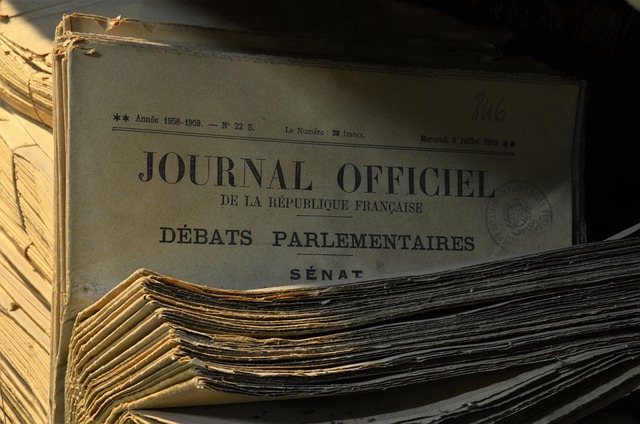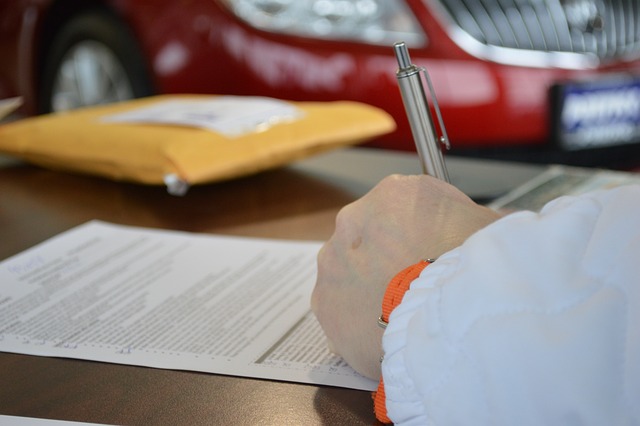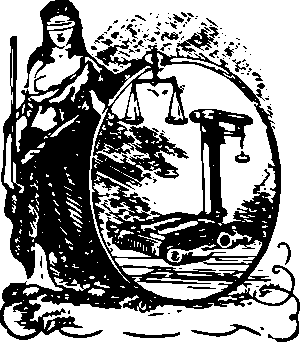To successfully navigate the UK's immigration process, it is imperative to obtain legalised translations for non-English documents from certified Legalised Translation Services UK. These services ensure that foreign documents are accurately translated and then stamped by the Foreign, Commonwealth & Development Office (FCDO) to confirm their authenticity. This step is essential as it aligns with the UK's stringent immigration system requirements for document precision and interpretation. Utilizing reputable Legalised Translation Services UK guarantees adherence to national and European standards, with expertise across various sectors including business, legal, and medical fields. Birth certificates, marriage certificates, educational credentials, and criminal record checks are among the personal and legal papers that require precise translations for immigration applications to avoid delays or complications. The UK's regulatory changes have legally recognized translation services, enhancing cross-cultural communication and international trade by ensuring linguistic accuracy and professional integrity. For immigrants, this means that their documents will be trusted and processed efficiently, reflecting the importance of choosing accredited Legalised Translation Services UK for a seamless immigration experience.
when navigating the complexities of immigration within the United Kingdom, the critical role of legalised translations cannot be overstated. This article delves into the indispensable nature of certified translations for immigrants seeking to establish a foothold in the UK. We will explore the necessity of engaging with Legalised Translation Services UK, the specific documents that demand such meticulous processing, and the intricate legal framework that governs this process. From understanding the pivotal step-by-step legalisation procedure to recognising the importance of accredited translators’ credentials, this guide aims to demystify the requirements for trustworthy translations. Additionally, we will highlight common errors to avoid and offer insights on selecting a dependable service provider to ensure your immigration application is bolstered by impeccably legalised translations. Case studies illustrating successful immigration outcomes will underscore the practical impact of adhering to these protocols.
- Understanding the Necessity of Legalised Translations for Immigration
- The Role of Legalised Translation Services UK in Immigrant Applications
- Types of Documents That Require Legalisation for Immigration Purposes
- The Process of Legalising Translations: A Step-by-Step Guide
- Accredited Translators: Verifying Credentials for Trustworthy Translations
- The Legal Framework Governing Legalised Translations in the UK
- Common Pitfalls to Avoid When Obtaining Legalised Translations
- How to Choose a Reliable Legalised Translation Service Provider in the UK
- Case Studies: Successful Immigration Applications Facilitated by Legalised Translations
Understanding the Necessity of Legalised Translations for Immigration

When individuals embark on the immigration process, particularly within the UK, one critical aspect that cannot be overlooked is the procurement of legalised translations for foreign documents. The UK’s Home Office stipulates that all non-English documents must be translated and bear a certificate of accuracy by a professional translation service recognised by the government. This stringent requirement ensures that immigration officials can accurately assess the authenticity and relevance of each applicant’s submitted paperwork. Legalised translation services in the UK play an integral role in this process, providing precise translations that are then legalised by the Foreign, Commonwealth & Development Office (FCDO). This legalisation confirms that the translation is a true and faithful representation of the original document and meets the legal standards required for immigration purposes. It is not merely a formality but a safeguard that facilitates the smooth processing of applications and protects the integrity of the UK’s immigration system. Therefore, individuals must engage with established legalised translation services in the UK to navigate this requirement successfully. These services are adept at handling the nuances of language and legal terminology, ensuring that all translations adhere to the highest standards of accuracy and compliance with the law. This meticulous process is indispensable for immigrants as it eliminates any ambiguity or potential misinterpretation of documents, thereby upholding the trustworthiness and credibility of immigration applications.
The Role of Legalised Translation Services UK in Immigrant Applications

Types of Documents That Require Legalisation for Immigration Purposes

When individuals embark on the immigration process, ensuring that all documents are accurately translated and legally recognised is paramount. Legalised translation services in the UK play a crucial role in this, as they provide precise translations of various personal and legal documents required by immigration authorities. Common types of documents that necessitate legalisation for immigration purposes include birth certificates, marriage certificates, educational credentials, and criminal record checks. These documents are often required to demonstrate identity, marital status, qualifications, or past activities. Additionally, immigration applications may need supporting letters or personal statements translated, which must convey the nuances of the original text accurately to avoid delays or complications in the application process. Engaging professional legalised translation services UK ensures that all translations meet the strict standards set by the UK Home Office and other relevant authorities, thereby facilitating a smoother immigration experience. Prospective immigrants should be mindful to obtain these translations early in their application process to avoid any unforeseen issues related to document verification or recognition.
The Process of Legalising Translations: A Step-by-Step Guide

When embarking on the journey of immigration, legalised translation services in the UK play a pivotal role in ensuring that all foreign language documents are accurately understood by the relevant authorities. The process of legalising translations is meticulous and requires adherence to specific legal requirements. Firstly, you must engage a professional translation service that specialises in certified or sworn translations. These services will have qualified translators who can provide translations that are legally acceptable within the UK’s immigration framework. The translator will convert your documents from their original language into English and attach a statement of accuracy, declaring that the translated document is an accurate reflection of the original.
Once the translation is complete, it must undergo legalisation by being stamped and certified by the relevant authorities. This typically involves having the translation signed and stamped by a translator who is registered with a government-approved body, such as the Institute of Translation and Interpreting (ITI) or the Chartered Institute of Linguists (CIOL) in the UK. Following this, the translated document may also require an apostille from the Foreign, Commonwealth & Development Office (FCDO) if the country of origin is part of the Hague Apostille Convention. This legalisation process authenticates the signature, seal, or stamp on the document, confirming that it is a true and accurate translation. This verification is crucial for immigration purposes, as it assures UK authorities of the document’s reliability and legitimacy, facilitating a smoother immigration process for individuals seeking to reside in or visit the UK.
Accredited Translators: Verifying Credentials for Trustworthy Translations

The Legal Framework Governing Legalised Translations in the UK

Common Pitfalls to Avoid When Obtaining Legalised Translations

When navigating the complexities of immigration, obtaining legalised translations is a critical step that cannot be overlooked. Legalised Translation Services UK play a pivotal role in this process, as they provide translations that are officially endorsed for use in legal and official contexts. To avoid common pitfalls when engaging such services, it is imperative to select reputable providers accredited by the relevant authorities, such as the UK’s Foreign, Commonwealth & Development Office (FCDO). One frequent oversight is opting for the cheapest service without verifying their credentials and the authenticity of their legalisation. This can lead to translations being rejected, causing delays and additional costs. It is also crucial to ensure that the translation covers all necessary documents and includes official certifications or stamps where required. Additionally, individuals must be aware that not all translations require legalisation; the document’s intended country of use dictates this necessity. For those that do, translations must be certified, followed by the appropriate legalisation process, which includes an Apostille for Hague Convention countries or attestation for others. Engaging with Legalised Translation Services UK that are well-versed in these nuances is key to a smooth and successful immigration process.
How to Choose a Reliable Legalised Translation Service Provider in the UK

When navigating the complex process of immigration, securing a reliable legalised translation service provider in the UK is paramount. The accuracy and authenticity of your documents can significantly influence the outcome of your application. Legalised translation services UK are specialized in translating official documents and certifying them to be equivalent in content and meaning to their original text, which is a legal requirement for immigration purposes. To ensure the reliability of these services, look for providers that hold professional accreditation such as the Association of Translation Companies (ATC) or the Institute of Translation and Interpreting (ITI). These accreditations demonstrate a commitment to maintaining high standards of quality and professionalism.
Furthermore, verify that the legalised translation service provider you choose has experience with immigration cases and understands the specific requirements set forth by the UK Home Office or the relevant authorities. A seasoned provider will be well-versed in the nuances of legal terminology and cultural contexts, ensuring that your translated documents are not only legally sound but also culturally appropriate. Additionally, they should be able to provide a clear process for having translations legalised through the proper UK channels, such as the Foreign, Commonwealth & Development Office (FCDO). By choosing a provider with these attributes, you can rest assured that your legalised translation services UK will meet all necessary standards and contribute positively to your immigration application.
Case Studies: Successful Immigration Applications Facilitated by Legalised Translations

Applicants seeking immigration to the UK often encounter a critical hurdle: presenting their documents in English or Welsh. Legalised translation services in the UK play a pivotal role in this process, ensuring that official papers like birth certificates, educational credentials, and legal documents are accurately translated and carry the necessary legal weight. For instance, Aisha’s application for a skilled worker visa was initially delayed due to her educational certificates being in Urdu. Upon availing of a legalised translation service, her academic records were translated into English by a certified translator and then legalised by the Foreign and Commonwealth Office (FCO). This process confirmed the authenticity of the documents, leading to a swift approval of her visa application. Similarly, Raj’s family immigration application was streamlined when his marriage certificate, originally in Hindi, was legally translated into English. The legalisation of the translation by the FCO satisfied the UK Home Office’s requirements, ensuring that his spouse could join him without any impediments. These case studies underscore the importance of professional legalised translation services in facilitating successful immigration applications in the UK, where accuracy and official validation are paramount for a positive outcome.
